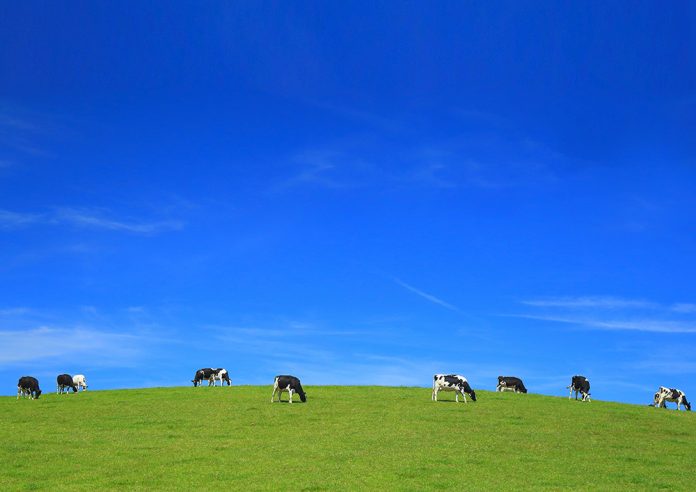By James Lloyd Jones, Founder and CEO, The Jones Food Company and COP26 summit ambassador.
We are in the midst of a nationwide food supply crisis. An unhelpful blend of circumstances, such as Brexit and the pandemic, have delivered empty shelves, driver and labour shortages and, most recently, scenes of forced food wastage from fresh produce farmers across the UK.
I believe we can futureproof our farming industry; however, that traditional farming can adapt and new methods of farming can solve many of the most pressing issues we’re facing as a country and as a planet. When I began The Jones Food Company in 2017 there was relatively little known about the wider benefits of vertical farming; today we’ve come a long way but we’re still only in the foothills, and this sector still has a long way to go.
The Jones Food Company currently runs Europe’s largest vertical farm which is 50,000 sq ft, on a site in Lincolnshire. Currently, we harvest on a daily basis, across 17 tiers, equating to 26 tennis courts of growing space all for basil. Next year we’ll open a second facility, JFC 2, which will hold 148,000sq ft of growing space, equal to 78 tennis courts and the biggest in the world. JFC 2 will take this far further, reducing the volume of international imports, increasing food security and shortening the supply chain.
In the next 10 years, I really believe vertical farming as a whole will be producing as much as 70% of the UK’s fresh produce. We’ve learned so much, our increasing scale leads to decreasing costs, our techno-know-how continues apace and the crop possibilities are truly endless. Currently we grow basil, but soon this will be herbs, fruits, cut flowers and vegetables, potentially even rice and wheat too. If the garden of England (our vertical farm) is in Kent today, I see no reason why every county in England and Scotland, and every country in the world can’t also have its own ‘garden’ in the near future.
The labour it will take to harvest these crops will be drastically lower, we just don’t need anything like the same number of people to harvest the same size of crop; at JFC2 for example, we’ll have just 16 people, two teams of eight, managing machinery and robots.
Traditionally we’ve been accused of being so energy-intensive that we undermine our own green credentials. Now however, things have changed; JFC2 will be powered solely by renewable energy – solar panels, battery backup and wind. This means we can add total green energy use to other strong sustainable factors such as how much less water we use (95% less), how we use zero chemical pesticides and how our products can reach the end consumer after significantly fewer air and road miles.
It’s not just us who can see this potential, there are companies in the US, Germany, the Netherlands, the Middle East and Asia all working on ever-bigger facilities. This rapid growth is happening right now because issues like climate change force every country to reconsider its food supply and issues like Covid force every retailer to examine its supply chain – vertical farming wins against both.
Due to this vertical farming boom, and JFC’s position as a global leader in the sector, I have been invited to sit as one of the 26 COP26 summit ambassadors for the UK in November. The agriculture industry has a big part to play in reducing carbon emissions globally, the more we can educate on new methods of farming, the more they become the norm. This country has a long and proud tradition of innovating in farming, this is the latest slice of a long heritage… Britain is leading the way and our vertical farming sector is good to grow. My mission? To partner, share and collaborate with others who understand the need and the opportunity.



